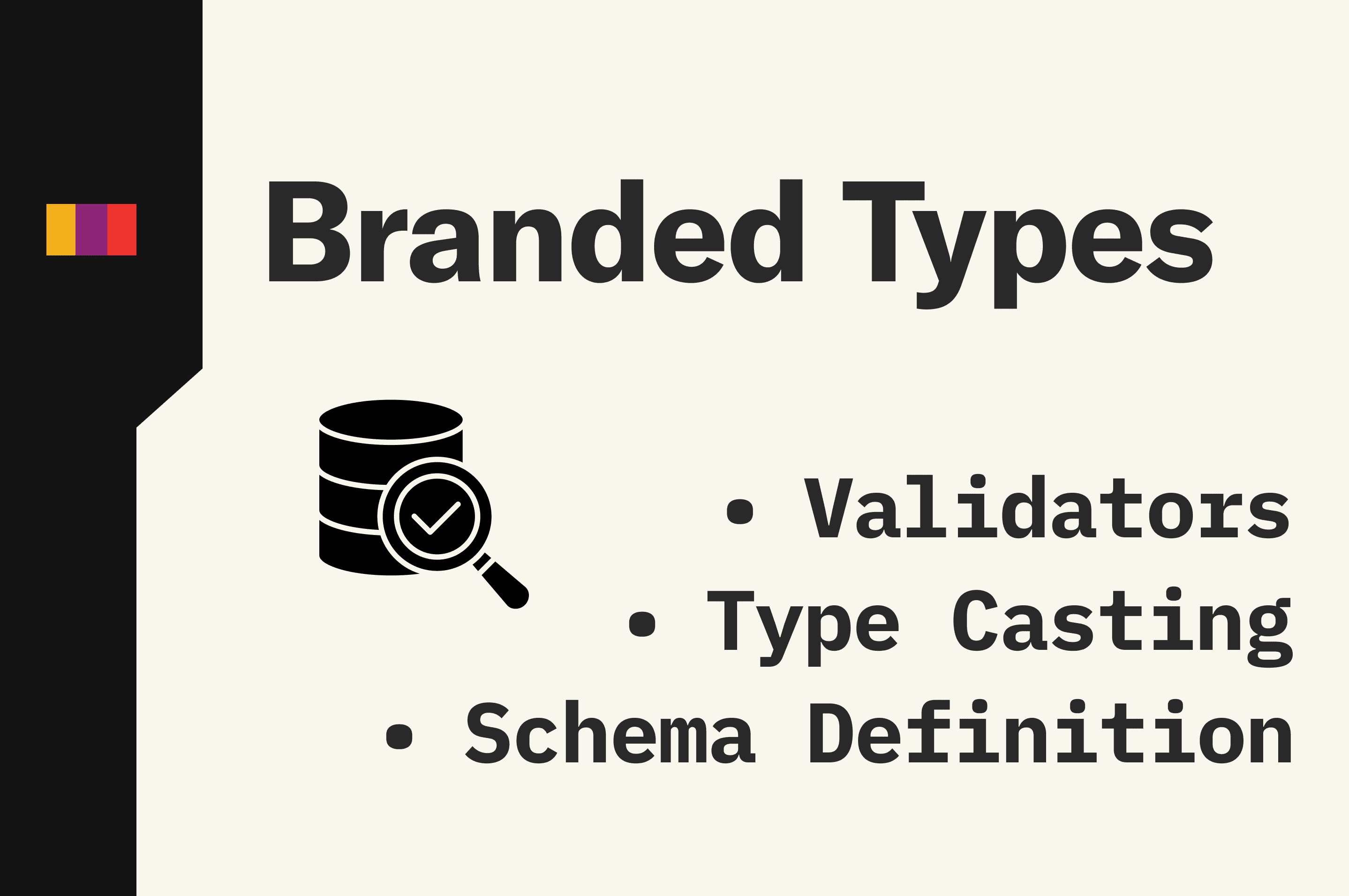
Using branded types in validators

If you have a more specific type than what you can express with Convex validators, you can still document that at the type level in Convex by casting once in your schema definition.
If you have a type that you use to distinguish different strings, for instance, you might want to make sure you're passing just those types around. E.g. you might have a type:
1type MyStringType = string & { __myStringType: never };
2brandedString helper
If you just want to get to the code, you can use the convex-helpers helper:
1import { brandedString } from "convex-helpers/validators";
2import { Infer } from "convex/values";
3
4export const emailValidator = brandedString("email");
5export type Email = Infer<typeof emailValidator>;
6Read on to learn more about casting in different scenarios.
Casting schema validators
If you want to use this type for Convex, you can only set a field validator as v.string(). However, if you cast it in your schema definition, you'll get the types everywhere automatically:
1import { defineSchema, defineTable } from "convex/server";
2import { Validator, v } from "convex/values";
3
4defineSchema({
5 myTable: defineTable({
6 myField: v.string() as Validator<MyStringType>
7 })
8)}
9field will be typed as MyStringType. When you have a query like:
1const doc = ctx.db
2 .query("myTable")
3 .filter(q => q.eq(q.field("myField"), foo)
4 .first();
5You will have type hints that the parameter for foo needs to be of type MyStringType and you'll get type errors if your type doesn't match.
You'll also see that doc.myField has the type MyStringType when you retrieve it.
Casting argument validators
The same logic applies to function arguments:
1export const foo = query({
2 args: { bar: v.string() as Validator<MyStringType>},
3 handler: async (ctx, args) => {
4 //... args.bar is type MyStringType
5 },
6});
7On the client, you'll get type errors if you don't pass MyStringType as the bar parameter.
Can I get into trouble?
Yes! Whenever you use as in TypeScript, you're saying "hey compiler, I know better than you here, so just trust me, k?". Casting to a branded string is less risky than as any. Thankfully, TypeScript will try to save you from glaring errors. For instance, if you do:
1 counter: v.number() as Validator<string>,
2you could get into a situation where the field expects to be compared to a string as a type, but at runtime will be validated as a number. Thankfully, in situations this embarrassing TypeScript will give you an error:
1Conversion of type 'Validator<number, false, never>' to type 'Validator<string, false, never>' may be a mistake because neither type sufficiently overlaps with the other. If this was intentional, convert the expression to 'unknown' first.
2 Type 'number' is not comparable to type 'string'.ts
3TypeScript will only let you cast when it's plausible. This doesn't mean you can't make a mistake, but it will hopefully save you most of the time. And if you really think you know better than the compiler, you can do v.number() as unknown as Validator<LiterallyAnythingGoesAtThisPoint>, just don't send it to me in a pull request :).
What happens at runtime?
At runtime, it will just be validated with v.string(). These types disappear when the TypeScript is compiled to JavaScript, and you'll observe typeof myField === "string". TypeScript is not static typing. It's some fairy dust sprinkled on top of JavaScript that gets baked off during transpilation to js (e.g. when you run tsc).
What is string branding?
String "branding" is where you annotate a type that is different than a normal string at the type level, even though it's just a string at the runtime level. For instance, a Convex Id<"users"> is the type string & { __tableName: "users" }. This means if I try to assign const foo: Id<"users"> = "bar";, I will get a type error. It's fine to do const foo: string = "bar" as Id<"users">; however, since Id is just a more "refined" type of string.
Convex is the backend platform with everything you need to build your full-stack AI project. Cloud functions, a database, file storage, scheduling, workflow, vector search, and realtime updates fit together seamlessly.